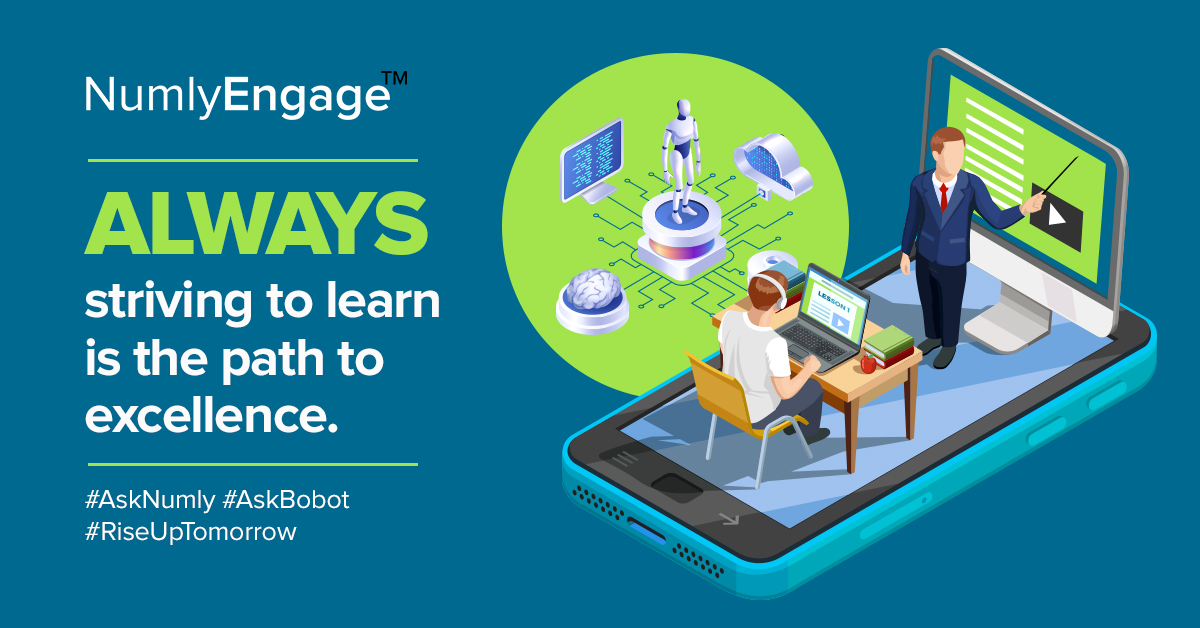In today’s fast-moving and increasingly competitive world, standing still is equivalent to moving back. Competitive advantage can never be guaranteed, and disruption is a constant. Digital technologies bring in organizational stability and become the cause of increased competition and employee turnover, especially as employment doesn’t remain limited by physical proximity. Then there is the world of work that has moved, somewhat prematurely, into the Future of Work leading to the rise of remote work and hybrid workplaces as a response to the pandemic.
Organizations are looking for ways to manage constant change and disruption while keeping employees engaged in this hybrid work model. One of the best ways to achieve this is to ensure equitable distribution of knowledge seamlessly across the organization.
For this, organizations have robust learning and development plans and training initiatives to help their employees. However, along with these initiatives, organizations need to focus on creating a learning culture that is steeped in knowledge sharing.
The importance of knowledge sharing and what impedes it
In these digital workplaces, the concept of knowledge sharing becomes critical to develop a more unified, connected, and engaged workforce. Knowledge sharing is an activity through which knowledge and expertise are exchanged amongst colleagues and teammates. However, there is a certain cultural resistance when it comes to knowledge sharing.
This is usually because knowledge is not relegated to information consumption alone. It is also about the “how” and “why” and the complete experience behind something. Knowledge sharing is more than information exchange. It is about ensuring that employees become experts armed with the knowledge that goes beyond basic information.
Benjamin Franklin said, “An investment in knowledge pays the best interest”. Creating channels that remove silos and enable smooth knowledge sharing ensures greater innovation capabilities, a more productive workforce, faster problem solving, higher levels of collaboration, and more individual experts.
Knowledge sharing, given its impact, should ideally be a part of the organizational knowledge management strategy. However, most organizations look at knowledge sharing linearly…one that is limited to simple documenting and creating some knowledge-sharing articles.
However, the environment of constant disruption, rising competitiveness, and the consequent need for increased resilience demand that organizations take calibrated steps to create and preserve knowledge across evolving workforces. The objective is to create a workforce that can link knowledge with action to drive value. This can only happen with peer coaching.
Peer coaching eliminates the barrier to action
To effectively implement a culture of knowledge sharing it is essential to embed it into the organizational culture, spanning from the junior-most to the senior-most individual.
This can only be achieved when there is a systematic shift in perceptions and learned behaviors.
Driving such a shift of behaviors can only happen with contextual learning, consistent reinforcement of new learnings, and timely feedback. It requires knowledge sharing to become an integral part of the knowledge management process. This can happen organically within an organization by building a culture of peer coaching.
Peer coaching is a non-judgmental process where two people of equal status actively help each other to solve specific tasks or issues using simple, straightforward advice and a mutual desire to be helpful.
Peer coaching works in driving organizational knowledge management because, –
It is data-driven and contextual
Organizations can drive highly contextual and relevant peer coaching programs to help employees navigate the skills gap or performance challenges they experience. Using tests such as behavioral analysis tests or 16 personality factor tests, organizations can adopt a data-driven approach to drive peer coaching across the organization.
People are more responsive to contextual information because of which peer coaching becomes more compelling in overcoming resistance to change.
It reaffirms learning and drives behavioral shifts
Peer coaching is an informal process that occurs cyclically. It can be an effective tool to reaffirm learning and share knowledge in an organized and systematic manner. Since peer coaching can become a part of a larger learning setup, it can be easily leveraged to drive better learning outcomes with repetition.
Peer coaches are also change-enablers since they are a part of the organization and are employees themselves with the relevant experience. Because of this, their suggestions become more relevant, help in building greater understanding, become more welcome and are easily put into practice.
Peer coaching breaks down the resistance to change and helps in driving behavioral shift by reaffirming learning, builds accountability, and automatically improves outcomes.
Peer coaching promotes knowledge sharing and continuous learning
By establishing a strong peer coaching network, an organization sets the tone for learning and establishes it as a part of its core philosophy. Creating the network and providing a platform to confidently and confidentially reach out to seek help to close learning gaps automatically encourages people to take charge of their learning. Building such a network promotes a culture of sharing and encourages those with elevated skills to upskill those in need.
Providing a platform to connect with coaches according to skill not only closes the skills gap but also encourages employees to ‘pay it forward.’ With peer coaching, organizations can build the peer mindset and make learning endemic to the organization. It builds learning and coaching into the very fabric of the organizational culture and ensures that tribal knowledge does not filter out of the organization but flows through it seamlessly. Since it promotes organic exchange, it reduces the resistance towards change.
Finally, peer coaching establishes the network that ensures knowledge is distributed evenly and equitably across the organization and delivers enablement and empowerment when work happens.
Connect with us to see how our AI-powered peer coaching platform can help your organization elevate knowledge management and make it a part of the company culture.

